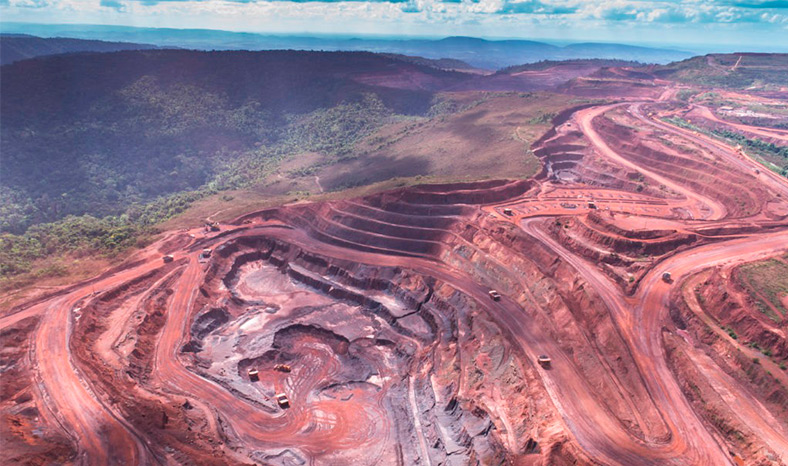[Check out our audio-pitch:Audio_Pitch_Celia_Sophie.mp3 (1,91 mb)]
Cosmetics
The earliest documented origin of cosmetics is in ancient Egypt. Back then cosmetics were made from various mixtures from natural mineral pigments, various oils, water or animal fats. It was also common that both men and women used cosmetics – it was used to wade off evil spirits.
Fertilizers
Mineral fertilizers contain important plant nutrients such as:
- Nitrogen
- Phosphorus
- Potassium
But fertilizers containing minerals with phosphates are found to be toxic.
The toxic component is called apatite, which is extracted to manufacture fertilizers.
Apatite itself is not toxic but can become so if it is contaminated with cadmium, which, unfortunately, is frequent.
These toxins get washed away from the fields by rainwater and pollute rivers and streams.
[by Celia & Sophie]

A modern smartphone contains a large number of elements (highlighted in color). Titanium, for example, is used in the manufacture of the SIM card (light blue), and cobalt in the manufacture of the battery (orange). Hydrogen, which is contained in the housing (yellow), was already used in phones of earlier generations (1960 and 1990). Other elements, such as helium, molybdenum and cadmium, which were used in the past, are no longer present in modern smartphones. (translated by DeepL.com)
=>Full article in German (woz.ch, Le Monde diplomatique, Oct 21): The-eco-sins-of-the-digital-industry.pdf (879.02 kb)
We have implemented a new feature - we call it "Wikipedia preview box". Every link to a Wikipedia article automatically gets a preview box which appears on mouseover or a fingertip and is recognizable in the text through a (W). This works on this site and also on dontwastemy.energy (and other websites), former Wikipedia links got the feature automatically.
It's the first version, if you find a bug, have an idea or comment, please get in contact with the teacher.
Try it out:
Lorem ipsum dolor sit amet Wind Pconsetetur, Hitzewelle aliquyam erat, Baklava sed diam voluptua. At vero eos et 全球变暖 accusam et justo duo श्रीनिवास रामानुजन् et ea rebum. Gubergren, المجموعة الشمسية. Lorem ipsum dolor sit amet, Ada Lovelace Eonsetetur sadipscing elitr, Благовещенск sed diam.
Rábano ipsum dolor Radieschen, consectetur elit. Sed radish do eiusmod tempor radish ut 萝卜 et dolore magna retiisi. Ut enim ad minim Редис, quis nostrud exercitation ullamco laboris nisi ut aliquip ex eatim ラディッシュ consequat.
Minimanual: Setting a #nopreview at the end of a link prevents the preview box, e.g.: https://en.wikipedia.org/wiki/Radish#nopreview - see the link "radish" above as an example.
Warm regards,
Tech-Nick
How bad is damage to health from noise pollution?

Noise is unwanted sound. With every disturbing noise, the human body goes on alert. It releases stress hormones such as adrenaline and cortisol, the heart beats faster, blood pressure rises and the breathing rate increases.
Besides stress, noise has other direct effects on health, such as
- nervousness, tension
- fatigue, dejection
- Aggressiveness
- High blood pressure
- Cardiovascular diseases
- Disturbance of concentration
- Impairment of performance
- Reduced reading comprehension and long-term memory and motivation in school children
- Difficulty communicating
- Social isolation
More...
(Alexandra Eberle & Cheyenne Lea Henzelmann)
Rare earth elements
Rare earth = 17 metals --> same chemical properties:
physical properties --> very different
e.g. react magnetically under UV light.
Occur in many places in the earth's crust. Minerals monazite & bastnäsite contain several SEM occurrences above 1% --> rare, therefore "Rare Earth".
Largest deposits in China, Brazil and USA. Originally waste products from extraction of other metals. Today mined for high-tech industry.
Extraction:
Use of acids --> formation of radioactive waste. This makes mining expensive. Low environmental regulations and cheap labor --> development mass production (China) 2010 approx. 98% of SEM production (worldwide) from China. Export restriction kept world market prices high.
Different reactions of the industry:
Mines newly opened or reopened
Industrial processes developed --> raw materials in demand to be obtained by recycling --> e.g. magnets
Consumer side has reduced use of SEM --> replacement by alternative materials.

Rare earth elements
Hello Reader,
Do you think you use grey energy in your life? :-)
If you are interested, read the following post!
[More] --> In the following post, grey energy is explained in more detail. The circle of life is explained preciser as well as what grey energy contains. In addition, everyday consumption is shown by means of examples. Aswell as the footprint compared to the average footprint.

Picture: Cycle of grey energy
[Audio pitch: Recording Embodied Energy.ogg (112.01 kb) ]
Quiz questions:
Q: What where the two sounds in the recording above?
A: _________________________________________
Multiple Choice:
Q: Is meat embodied energy?
A: ( ) YES
( ) NO
Vocabulary:
- Consumer goods --> Konsumgüter
- Recources --> Rohstoffe
- Mining --> Rohstoffgewinnung
- Raw material processing --> Rohstoffverarbeitung
- Disposal --> Entsorgung
- Production --> Fabrikation
- CED (Cumulativ energy demand) --> KEA (Kumulierter Energieaufwand)
[Source: Focus Terra I / focusTerra I - Earth's Treasures (office.com)]
Alina & Lia
We have already looked at the 5 R's in our short presentation. Now, in form of a speedy post, we would like to briefly introduce them to you again. According to the 5 R system, four actions should be taken, if possible before recycling. Our natural resources, such as minerals, land, air and water, are being depleted and degraded at an ever faster pace. What can we do to save and protect our resources?
My advice: Make it easy for you and the readers, i.e. the name of the link should be as short as possible but include enough information about the final source (e.g. title of the article or document and main website).
Good example
Source: Kreislaufwirtschaft (bafu.admin.ch)More...
Classification of natural hazards
Natural hazards include all processes and impacts of nature that can be harmful to humans and property. Based on their cause, natural hazards are divided into three different groups:
- Hydrological / meteorological natural hazards
- Floods: inundation, bank erosion, overbank debris flow
- severe weather: thunderstorm, hailstorm, winter storm
- Avalanche (snow and ice avalanche)
- Cyclones
- Tsunami
- Cold spell
- Drought / heat
- Forest fire
Geological natural hazards
Mass movements: Landslide, rock / boulder fall, rock fall, landslide.
Earthquake
Volcanism
Biological natural hazards*
Pests, invasive plant species
Thunderstorms in Switzerland
The most frequent thunderstorms are heat thunderstorms. Frontal thunderstorms are less frequent and less violent.
In Switzerland, heat thunderstorms occur regularly during the hot summer months. The steep topography of the country favors localized heating, followed by an ascent of moist air masses that can form tower-like thunderclouds that rise to high altitudes. The strong updrafts and downdrafts generate electrical voltages that discharge and produce lightning.
Lightning strikes often start fires that can set buildings and forests ablaze. They can also cause severe damage to computers, televisions, telephone systems and other equipment because electronic components are not well suited to withstand power surges. For example, circuit boards or cables melt due to overheating. Every year, lightning kills about a thousand people worldwide - either from the lightning strike itself, from electrocution, or from burns.
https://www.gev-versicherung.de/ratgeber/naturgefahren-naturkatastrophen-deutschland/